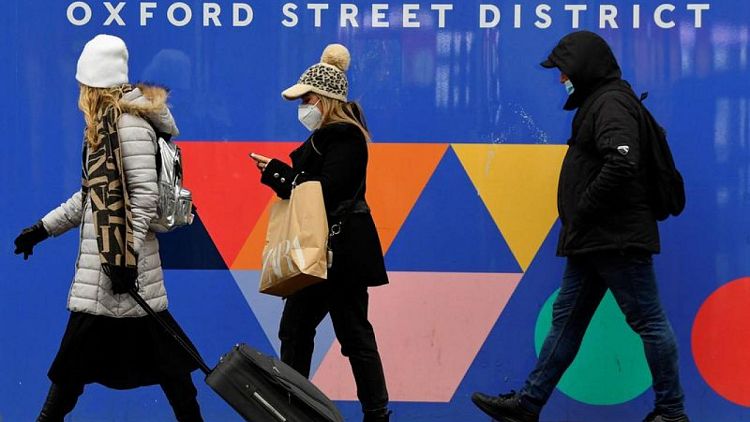By David Milliken
LONDON - British shoppers began to return to stores last month after many stayed away during a wave of COVID-19 cases that peaked at the turn of the year, although fast-rising inflation is curbing their spending power.
Retail sales volumes rose by 1.9% in January after a 4.0% decline in December, the Office for National Statistics said, the largest rise since lockdown rules for non-essential stores in England were relaxed in April 2021.
The monthly increase was greater than the average 1.0% gain forecast in a Reuters poll, although December's drop in sales was slightly bigger than first estimated.
Britain's wider economy shrank by 0.2% in December, according to an initial estimate last week.
"The solid rise in retail sales volumes in January adds to the signs that the Omicron-induced hit to activity was smaller and shorter-lived than previously thought. Even so, the cost of living crisis means the outlook for retailers is anything but bright," said Adam Hoyes, economist at Capital Economics.
Households face rapidly surging consumer price inflation, which hit its highest in nearly 30 years in January at 5.5%, and is forecast by the Bank of England to peak above 7% in April.
A separate measure of inflation used to calculate January's retail sales data rose to 6.7%, the highest since this data began in 1997.
Fast-rising prices for energy and food leave consumers with less spare cash to spend on non-essentials, and 2022 looks set to bring the biggest squeeze on households disposable income in 30 years.
(Graphics: https://graphics.reuters.com/BRITAIN-ECONOMY/RETAIL/myvmnjzwdpr/chart.png)
January's sales volumes were 9.1% higher than a year earlier, when non-essential shops were shut due to lockdown restrictions, and 3.6% above pre-pandemic levels.
Britain's retail sector as a whole was relatively resilient through the COVID-19 pandemic, with sales exceeding January 2020 levels in July 2020, thanks to a big shift to online shopping.
However some retailers, especially clothes stores with little online presence, found it much harder to recover from repeated lockdowns.
Clothing and footwear sales fell 5.0% in January - which the ONS said might be down to smaller-than-usual discounts in the seasonal sales - and are 13% below pre-pandemic levels.
Some pandemic trends have been slowly reversing. The percentage of sales made online fell to 25.3% in January, its lowest since March 2020 although still well above the 19.8% seen in February 2020 before the pandemic.
Food sales dropped below pre-pandemic levels for the first time.
"More people returned to eating out and there was also anecdotal evidence suggesting higher demand for takeaways and meal-subscription kits," ONS statistician Darren Morgan said.


